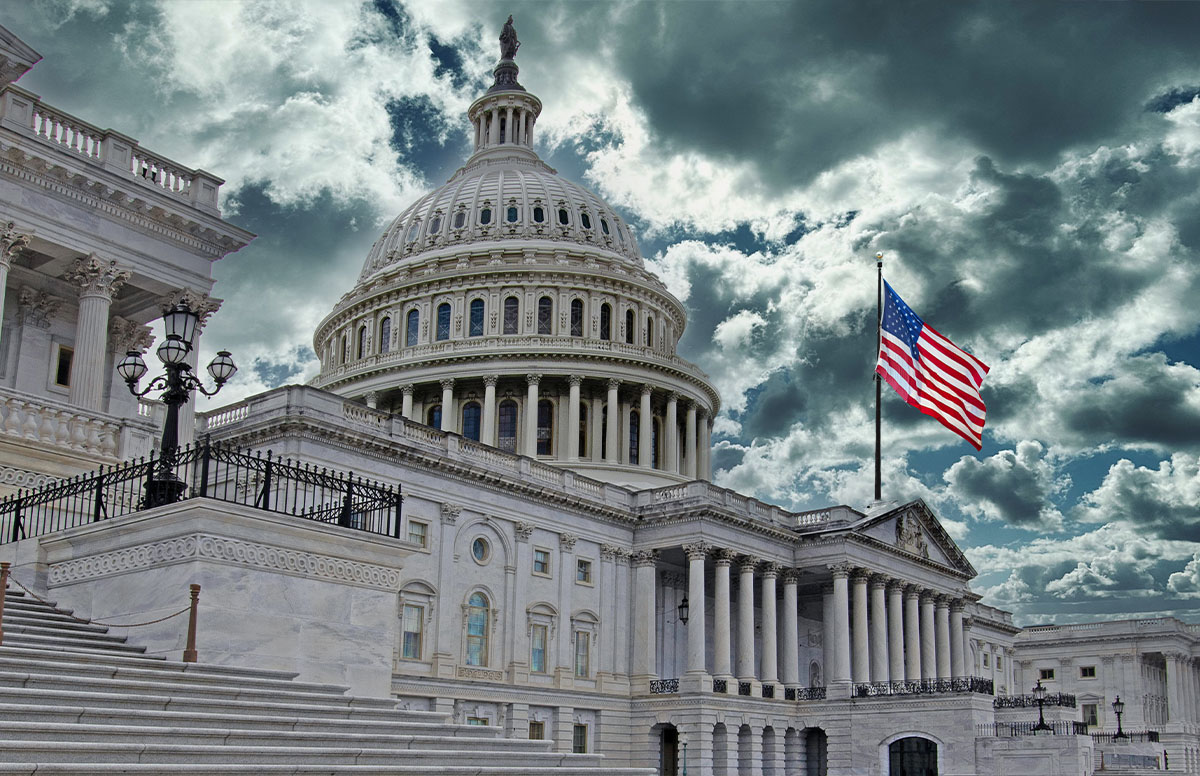The House and Senate leaders on December 17 attained agreement on a large legislative package that includes the “must-pass” extension of the current continuing resolution (CR), which expires at midnight December 20. Because passage of a CR extension is required to keep most federal programs from shutting down, many other issues attached themselves to this legislative vehicle.
Below, a preview of what’s in and what’s out of the package based on our initial review of the package’s text, released the evening of December 17. As we pore over the bill’s 1,547 pages, LeadingAge will continue to inform members about its contents.
WHAT’S IN
HEALTH CARE: Health Extenders: On December 17, the health extenders package that is expected to ride along with the continuing resolution (CR) was released. Included in the package were the following policies LeadingAge advocated for and represent victories:
- Two-year extensions of the COVID-era telehealth flexibilities through December 31, 2026. These include allowing the home to be an originating site, waiving geographic restrictions, and allowing a wider range of providers to bill for telehealth services.
- The hospice face-to-face recertification via telehealth is among those policies extended, though there are some guardrails as to which hospices can use the flexibility. This reflects the language marked up by the Ways and Means Committee this spring and passed out of Committee unanimously.
- There is language instructing the Centers for Medicare and Medicaid Services (CMS) to create and providers to use modifiers and/or claims codes to track telehealth utilization.
- The inclusion of language that would codify beneficial reporting requirements around home and community-based services (HCBS) waiting lists.
- Inclusion of language that CMS must issue guidance to states to clarify how a state may provide services under 1915c waivers based on a provisional or interim plan of care.
- Authorization of a five-state, three-year pilot program to authorize selected states to cover HCBS for individuals who need such services but do not meet the current law requirement of having an “institutional level of care” under SSA 1915(c). This pilot program is an opportunity to demonstrate cost savings and improved quality of life for beneficiaries who may now be able to receive HCBS services prior to reaching an institutional level of care.
Other notable health provisions:
- Extension of funding for State Health Insurance Assistance Programs (SHIP) and other entities that provide Medicare counseling and education;
- A five-year extension of the Acute Hospital at Home program;
- A requirement that Medicare Advantage (MA) plans maintain accurate provider directories on a public website beginning in plan year 2027. Plans will be required to report on the accuracy of their directories and adjust cost sharing for beneficiaries if the directory is not accurate and the beneficiary was assessed a cost sharing amount higher than they would have paid had the directory been accurate.
HOUSING: Department of Housing and Urban Development (HUD) Appropriations: The package extends federal funding until March 14. Federal funding for HUD affordable housing programs is provided by annual appropriations bills. When Congress fails to enact final appropriations bills, as is the case for the current fiscal year 2025, programs survive on the previous year’s funding levels for the duration of a continuing resolution. HUD officials have told LeadingAge that funding for its affordable housing programs will survive unscathed at fiscal year 2024 levels through March 2025. Without an extension, the current continuing resolution expires on December 20.
WORKFORCE: Workforce Innovation and Opportunity Act (WIOA): Congressional leaders included reauthorization for WIOA and the bipartisan overhaul of the federal workforce development system in the CR package. The bill, named A Stronger Workforce for America Act (H.R. 6655) makes critical updates to WIOA that will increase the amount of skills development provided under the law, strengthen connections between employers and the workforce system, and put more Americans on the pathway to a successful career. Supporters of the workforce measure have been actively pursuing alternative pathways for its passage, especially after efforts to fast-track it as a standalone bill encountered obstacles in the Senate. Several senators, including Senator Bob Casey (D-PA), placed holds on the bill, citing the need to include provisions that would phase out a federal certificate program called 14C that allow certain employers to pay workers with disabilities significantly below the federal minimum wage.
The package also includes the Older Americans Act Reauthorization Act Of 2024, for which LeadingAge had advocated. The House and Senate are expected to vote on the bill before the CR expires on December 20.
WHAT’S OUT
Prior Authorization Bill: Did Not Cross Year-End Finish Line. LeadingAge staff, during the Monday, December 16, National Policy Pulse noted initial reports that the bipartisan, bicameral Improving Seniors’ Timely Access to Care Act (S. 4532 / H.R. 8702), which seeks to modernize prior authorizations through electronic transmissions of requests, clinical data and decisions, and provide more transparency and oversight of MA plan practices, was on the table in the year-end continuing resolution package negotiations and expected to be included. LeadingAge, along with roughly 500 other organizations spanning consumer groups, insurers, providers and others support this legislation.
However, in the end, the bill language was absent from the agreed upon language for the final year-end package. It appears CMS notified negotiators that funding was needed (reported to be $25 million) to implement certain aspects of the Improving Seniors’ Timely Access to Care Act even though the Congressional Budget Office gave it a budget neutral score. It is believed that it was the cost that prevented its inclusion in the final year end package. This outcome is highly disappointing. What advocates find most shocking is that bipartisan legislation with over 290 sponsors was not included in the final package that includes other provisions with much less support. The Regulatory Relief Coalition vowed to continue the fight for the bill’s passage when the next Congress convenes.

 Shutdown Week Three: Impact of Ongoing Closure on Affordable Housing
Shutdown Week Three: Impact of Ongoing Closure on Affordable Housing


